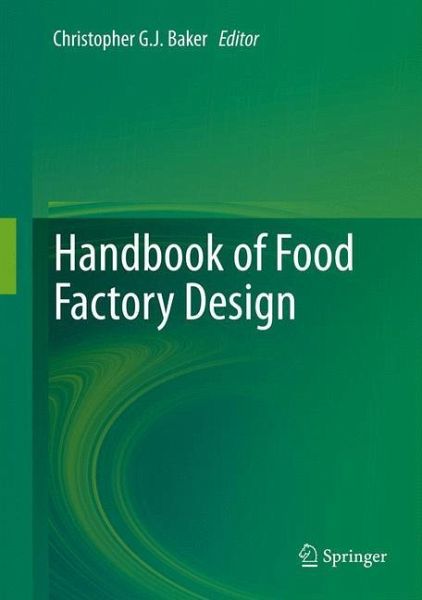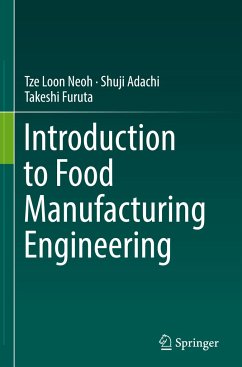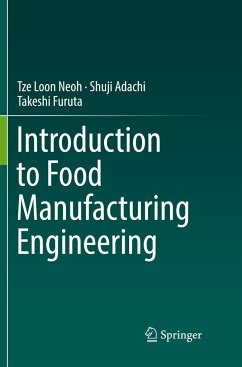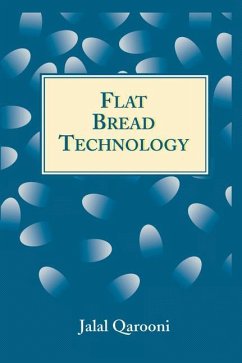
Handbook of Food Factory Design

PAYBACK Punkte
87 °P sammeln!
Food manufacturing has evolved over the centuries from kitchen industries to modern, sophisticated production operations. A typical food factory includes the food processing and packaging lines, the buildings and exterior landscaping, and the utility-supply and waste-treatment facilities. As a single individual is unlikely to possess all the necessary skills required to facilitate the design, the task will undoubtedly be undertaken by an interdisciplinary team employing a holistic approach based on a knowledge of the natural and biological sciences, most engineering disciplines, and relevant l...
Food manufacturing has evolved over the centuries from kitchen industries to modern, sophisticated production operations. A typical food factory includes the food processing and packaging lines, the buildings and exterior landscaping, and the utility-supply and waste-treatment facilities. As a single individual is unlikely to possess all the necessary skills required to facilitate the design, the task will undoubtedly be undertaken by an interdisciplinary team employing a holistic approach based on a knowledge of the natural and biological sciences, most engineering disciplines, and relevant legislation. In addition, every successful project requires a competent project manager to ensure that all tasks are completed on time and within budget. This Handbook attempts to compress comprehensive, up-to-date coverage of these areas into a single volume. It is hoped that it will prove to be of value across the food-manufacturing community. The multi-disciplinary nature of the subject matter should facilitate more informed communication between individual specialists on the team. It should also provide useful background information on food factory design for a wider range of professionals with a more peripheral interest in the subject: for example, process plant suppliers, contractors, HSE specialists, retailers, consultants, and financial institutions. Finally, it is hoped that it will also prove to be a valuable reference for students and instructors in the areas of food technology, chemical engineering, and mechanical engineering, in particular.













